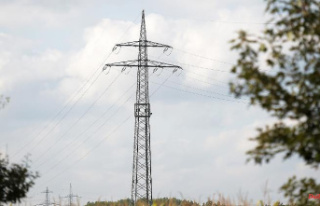Nikolai Patrushev is considered a confidant of Vladimir Putin. The words of the Russian head of the Security Council, who continues to press for "denazification" and demilitarization of Ukraine, carry all the more weight. According to US experts, the statements diminish the prospect of a compromise solution.
According to US experts, the Russian leadership is still aiming for a change of government in Ukraine and the capture of large parts of the country. This is what the US think tank Institute for the Study of War (ISW) writes in a recent analysis. Accordingly, the aim of the war is "the curtailment of the sovereignty of every Ukrainian state that survives the Russian attack".
The ISW refers to recent statements by the Secretary of the Russian Security Council, Nikolai Patrushev. He said on Tuesday that the "military operation" in Ukraine would continue until Russia had achieved its goal of protecting the civilian population from "genocide" and "denazifying" Ukraine.
According to several experts, the intention of "denazification" is equivalent to replacing the government in Kyiv. Patrushev also said Ukraine must be demilitarized and committed to permanent neutrality between Russia and NATO.
Patrushev's statements are remarkable because the government in Moscow recently backtracked rhetorically. For example, there was less talk of "denazification" and the "liberation" of the Donbass in the east of the country was more important. Patrushev is considered a security policy hardliner. According to the Washington Post, he is one of the few who still have a direct line to Vladimir Putin. The ISW also assumes that the head of the Security Council will not deviate far from the position of his president.
According to the US experts, the fact that Patrushev is now explicitly repeating Putin's initial intentions indicates "that the Kremlin does not consider the recent Russian gains in the Luhansk region to be sufficient to achieve the original goals of the 'special operation'". Rather, it is becoming apparent that the Russian military leadership is still pushing for advances outside the Luhansk and Donetsk regions and that the Kremlin is "preparing for a protracted war with the intention of taking much larger parts of Ukraine".
The US think tank sees the statements as evidence of the Russian government's unwillingness to negotiate. They weighed heavily on "those who believe that a compromise truce or even a peace based on limited additional Russian territorial gains is possible" - regardless of whether this would be unacceptable to Ukraine anyway.












